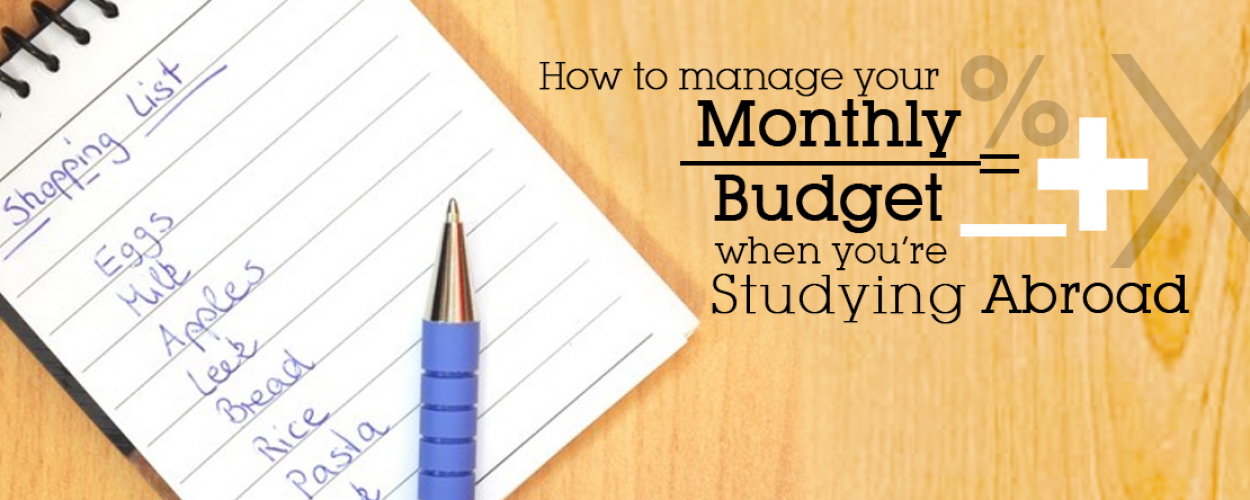Money Management is the biggest lesson life teaches when you go for a study abroad. There are lines that you learn to draw between the finances that you spend on survival essentials, whimsical wants, and all that you need to save to accomplish your aim of living the lifestyle that you’re most comfortable with when you study overseas. There is, of course, a chunk of the essential study overseas expenditure without compromises – like your tuition fee, housing, flight tickets, visas and more. However, there is much expenditure that you can curb easily by identifying your shopping patterns. This means you want to look for ways to substitute the more expensive buys with inexpensive but comfortable alternatives.
Intelligent budgeting is never about a complete refusal to buy, but is about identifying your real desires and finding cheaper ways to enjoy what you have always wanted.
How much expenditure should you expect?
It may surprise you to know a regular person when they study overseas, on an average makes over 500 purchases every year, which totals to an average of about $9,000. This obviously doesn’t include any tuition fee or housing expense, but for everyone – more for some and less for many – study abroad is definitely an expensive proposition. Therefore, it is highly recommended to seek study abroad consultants who can guide you with your study overseas budget.
Where does your money go?
The first step to prevent your money from draining out when you study overseas is by making a list of things you spend on. Once you do it, you’d realise most of the money is spent on food and groceries, eating out, beauty and toiletries, fashion and travel. There’s a little portion that goes to movies, parties, visits to events for entertainment, gym and miscellaneous.
Also read: Study Abroad Finance Tips
Here are some approximations
• Food takes up 30% of your overall spend- regardless if you study in Canada or USA, out of which 10% is on groceries, and round about 8% is on eating out. (~ $2,700)
• Beauty and toiletries take up the next big portion totalling to 17% (which makes about $1,500). This includes clothes, jewellery, accessories, make up – this portion is generally higher for women and may be equal or lesser for men.
• Travel- especially on your first year of study abroad, takes up a whopping 42% (approximately $3,800) most of which is transportation- if you study in Canada or USA and lodging, food and tours are inexpensive and minimum.
Here’s how to Budget
Perhaps, the situation might differ if you go for a bachelors or a masters in USA or Canada- as age and experience has a big impact on your saving habit. However, the fact that you have limited money should not worry you. Even on a tight budget, you want to make the most of the opportunity you have been given to study abroad. So, the best way out of this situation is to identify the things you really want to spend on and work out a weekly budget that can help you achieve that, without seriously draining your cash. Do not strike off anything that you seriously enjoy doing.
The whole point of budgeting is to spend intelligently and not sacrificing things that you like to do.
So remember to be responsible but also have fun while you can!

